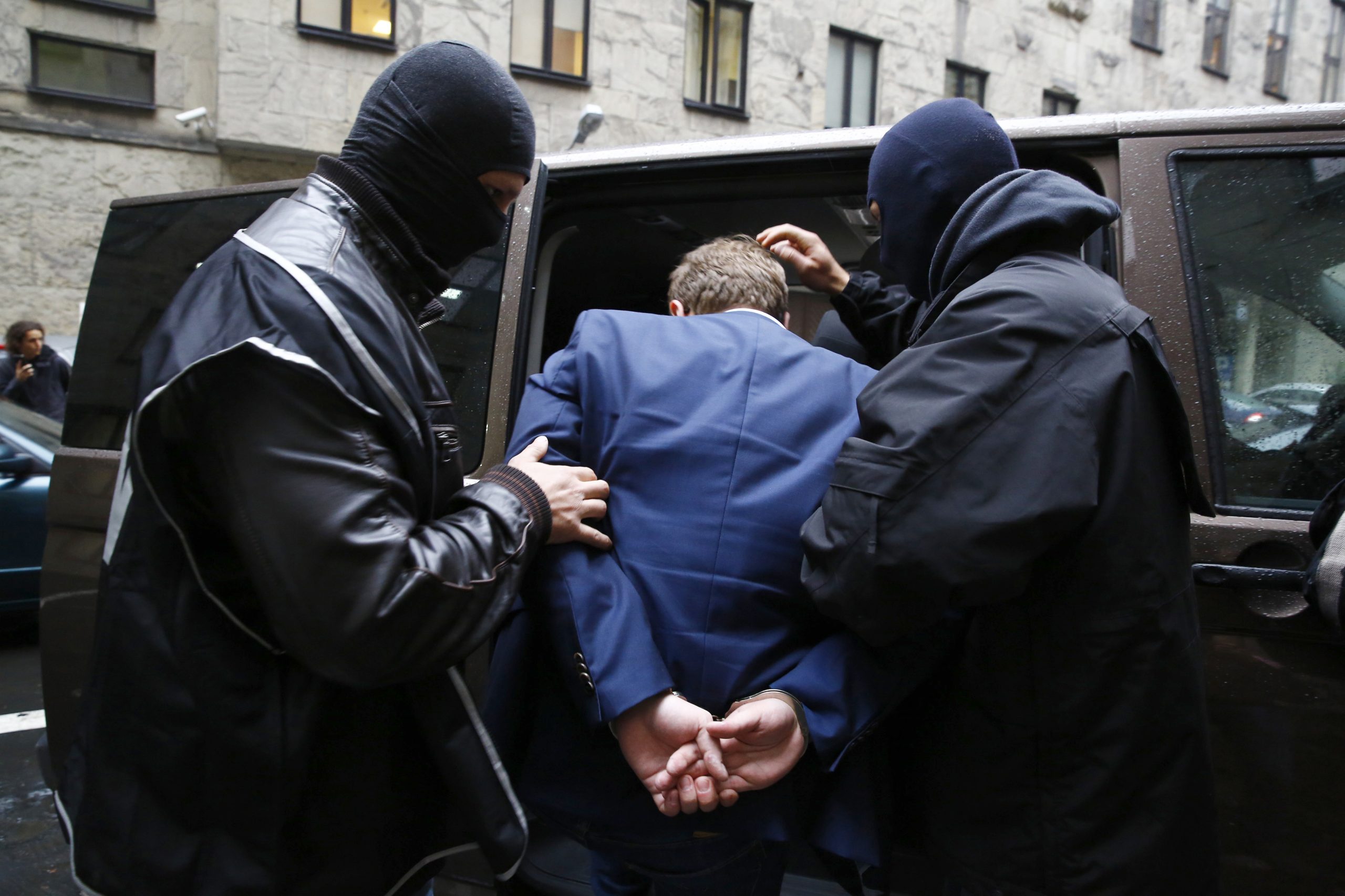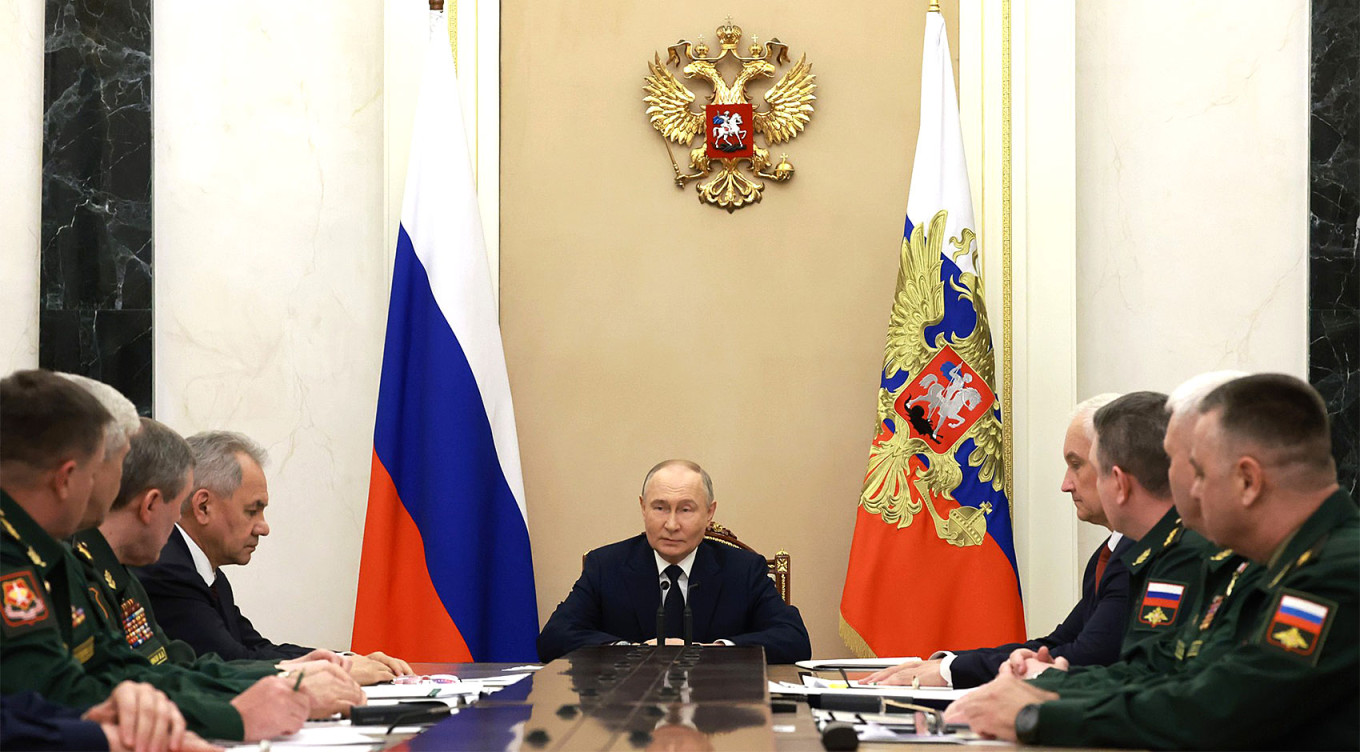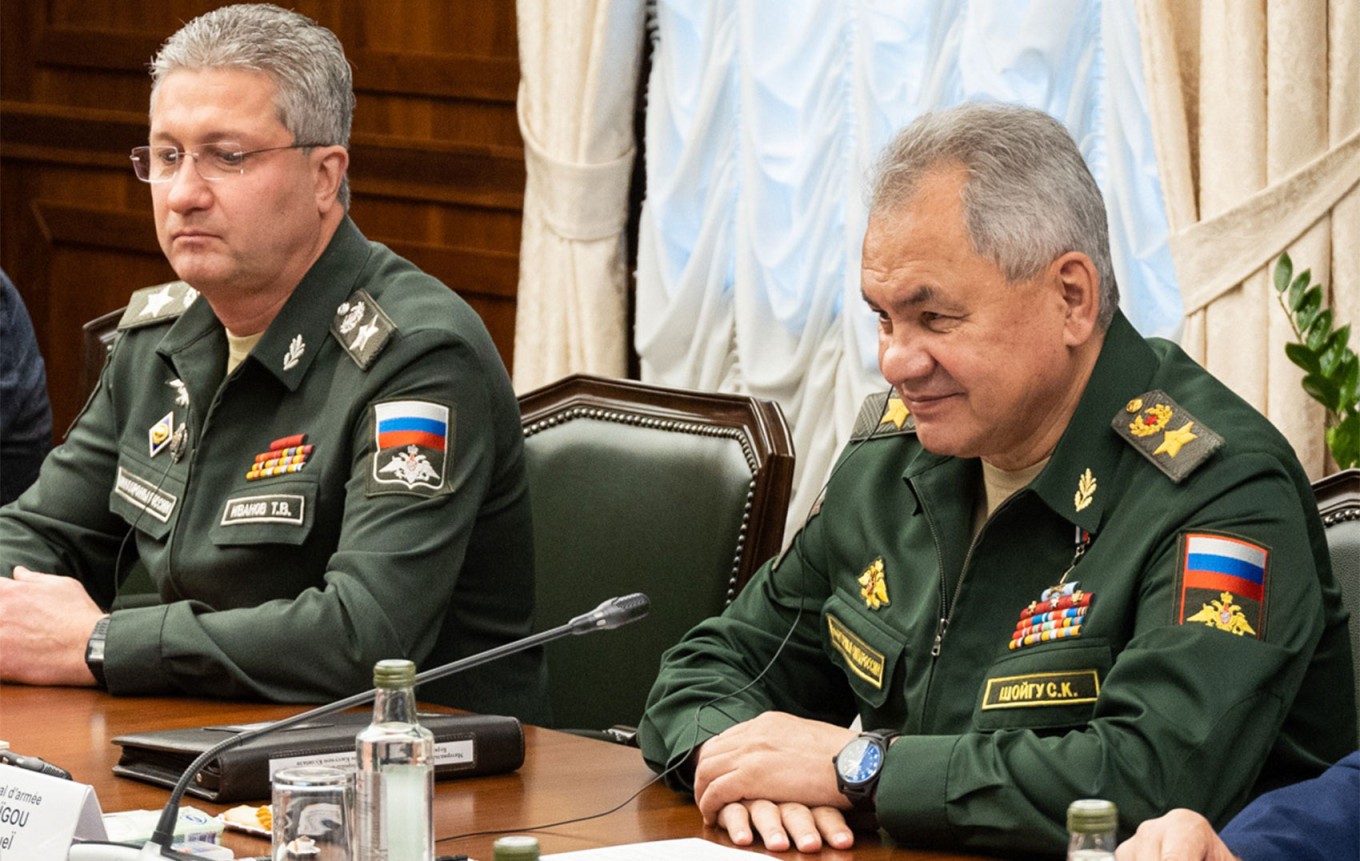
Taken together, the arrests of at least four senior officers amount to the most serious attack on the Russian military in close to 25 years of Putin’s rule.
One by one, military officials are being thrown into jail. With the situation on the battlefield in Ukraine looking more favorable for the Kremlin than for some time, Putin appears to think this an appropriate moment to punish the army for the failures of 2022.
His repressive instrument of choice is, as always, his security service the FSB.
The campaign started within the Ministry of Defense, taking as its first victim Deputy Minister Timur Ivanov on April 23. This did not raise many eyebrows — Ivanov was famous for his lavishly luxurious lifestyle, which had long suggested possible corruption.
Three weeks later, Lt-Gen Yuri Kuznetsov, head of the personnel department at the ministry, was arrested on allegations that he was found with more than $1m in cash and valuables.
Like Ivanov’s detention, this could be waved away as not especially significant and was not thought likely to have any immediate implications for the Russian war in Ukraine. More probable, it was said, the move was just a follow-up to Sergey Shoigu losing his job as head of the ministry and moving to a new role as Secretary of the Security Council.
Then, suddenly in the week of May 20, the purge claimed two new victims, and this time it involved generals actually conducting the war — a former commander of the 58th army Maj-Gen Ivan Popov, and Lt-Gen Vadim Shamarin, deputy head of the general staff in charge of army communications.
It is notable that none of the charges relate to the conduct of Russia’s war in Ukraine. All are corruption-related, alleging massive fraud and large-scale bribe-taking.
In all cases the scheme of an attack is identical — while the criminal case is examined by the Investigative Committee, a sort of Russian FBI, the Committee uses the materials provided by the Military Counterintelligence department of the FSB (DVKR – Department Voeinnoi Konttrazvedki.)
The DVKR’s name suggests it aims to identify foreign spies in the Russian army, but that’s not exactly the case: the department has been always considered a tool to keep the military obedient, a way to secure the army’s loyalty to the existing regime.
Putin realized the need for such an organization almost immediately after he came to power in 2000. As early as February of that year, he signed into law the “Regulations for FSB Directorates in the Armed Forces,” which expanded the functions of military counterintelligence and gave it the power to fight organized crime.
Get the Latest
Sign up to receive regular emails and stay informed about CEPA’s work.
His 2000 decree broadened the role of FSB officers in the army to include the uncovering of possible threats to the regime. Added to their professional responsibilities was the fight against “illegal armed formations, criminal groups, and individuals and public associations which have set as their goal a violent change of the political system of the Russian Federation and the violent seizure or violent retention of power.” Thus Putin reinstated the FSB’s military counterintelligence department as the watchdog of army morale and also charged the agency with scenting out potential mutiny.
The army, which had hated and feared military counterintelligence since Soviet times (they were referred to as Osobists, from the Osoby Otdel, a special department, or as Major Molchi-Molchi meaning a Shush-Shush Major), took the hint.
Curiously, the huge powers given by Putin to this department didn’t make the FSB’s military counterintelligence department a political actor.
In fact, the department, by far the biggest within FSB, proved to be the least ambitious among the departments of the security service. Throughout the 2000s and 2010s the departmental heads (in 25 years there were only three) kept a low profile and always steered clear of political games.
There have been temptations. Most recently, the late mercenary leader Evgeny Prigozhin attempted to lure the head of the department into his intrigues, sending a letter to the head of the DVKR Nikolay Yuriev. Fighting to save his Wagner Group and (as it turned out) his life, he never received a reply from the intelligence officer.
The department was more focused on a systematic effort to improve its public image — sponsoring historical research, and helping with war movies set in the Great Patriotic War. It was such a large-scale propaganda effort that by the end of the 2010s one could easily think that it was the smart and heroic military counterintelligence officers of Smersh (Stalin’s military counterintelligence agency) who won the war, rather than the ordinary soldier.
But that unwavering loyalty, together with the department’s public relations campaign, has paid off now in the time of war.
The DVKR has been constantly expanding its operations since February 2022. The department took charge of the processing of PoWs in filtration camps, harassing Ukrainian civilians in the occupied territories, and acting against Ukrainian underground groups. The department set up new ad-hoc teams to supervise troops on the battlefield.
Confirmation of the department’s rising star can be seen in several ways. DVKR officers are now involved in more and more investigations in Russia, which had nothing to do with the military, and politicians are calling for the regime to reinstate Smersh and give more powers to the DVKR.
Russian officers understand that “compromising materials” collected by the DVKR, which form the pretext for the arrests, are likely available on almost anyone in the army and can be swiftly presented when needed.
The message doesn’t need too much elaboration — Vladimir Putin is cold-blooded enough to take his revenge at any moment of his choosing. No one is safe.
Andrei Soldatov and Irina Borogan are Non-resident Senior Fellows with the Center for European Policy Analysis (CEPA.) They are Russian investigative journalists, and co-founders of Agentura.ru, a watchdog of Russian secret service activities.
Europe’s Edge is CEPA’s online journal covering critical topics on the foreign policy docket across Europe and North America. All opinions are those of the author and do not necessarily represent the position or views of the institutions they represent or the Center for European Policy Analysis.
Europe’s Edge
CEPA’s online journal covering critical topics on the foreign policy docket across Europe and North America.



